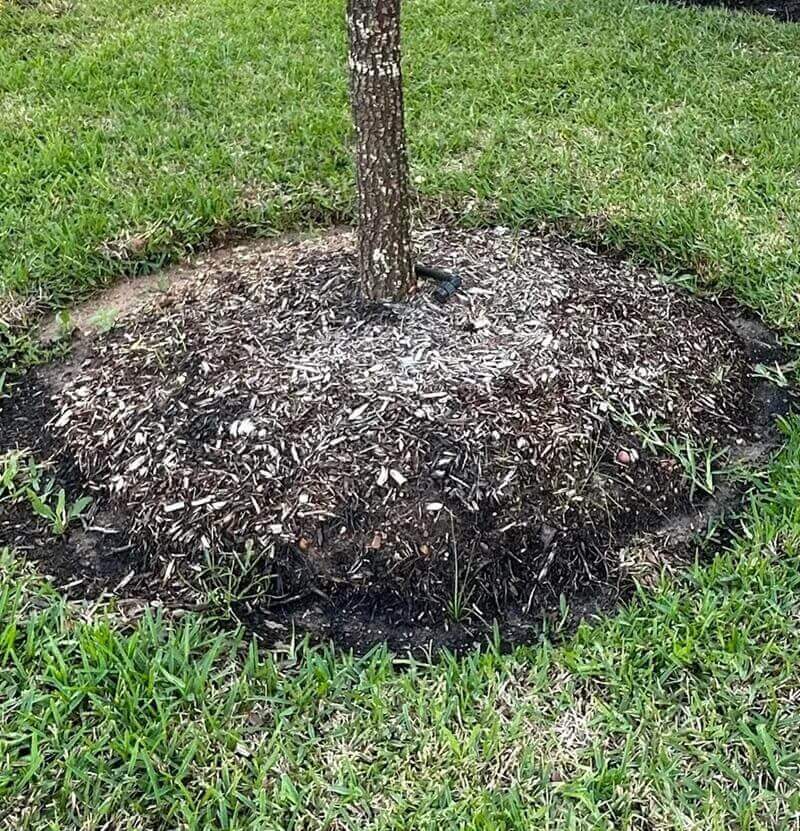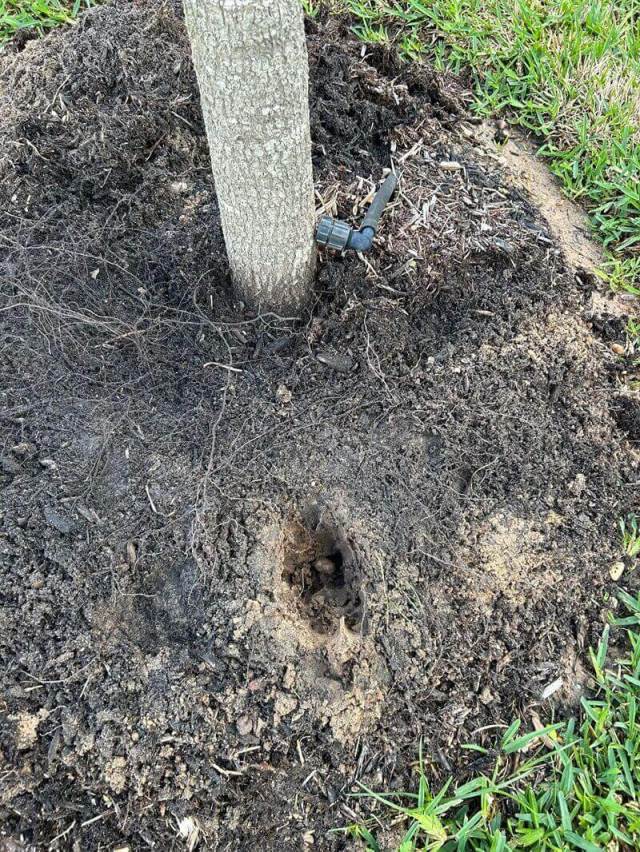When done correctly, mulching provides many benefits to plants. However, one homeowner recently discovered an eye-opening issue with their landscaping.
"My live oak trees were planted two years ago by the builder and have the dreaded volcano mulch," they wrote in the subreddit r/arborists, referring to the situation as a "nightmare" they wanted to improve.
In addition to "LOTS of small roots" growing up into the mulch rather than into the ground, heavy clay soil complicated matters.
"Any advice or input would be appreciated. I stopped shortly after finding this problem out of worry of causing damage," they shared, asking whether it would be OK to trim the roots after removing the mulch.
Other Redditors assured the original poster that they were doing the right thing.
"Yes, you can. Those roots are above the root flare in the mulch because they're looking for air. Poor tree was suffocating. Good thing you're there to help," one person said.
However, cutting into the roots does injure the tree, so it's essential to follow best practices to avoid harming its long-term health.
According to Bartlett Tree Experts, "Roots less than one inch (2.5 cm) in diameter can easily be cut with hand tools," but anything with a diameter of three inches (7.5 cm) or greater should not be cut "whenever possible."
Based on the photos, the tangle of tiny roots fit the criteria.


Meanwhile, the clay-heavy soil that the OP said was typical in their area sounded like quite a hurdle to overcome.
While it wasn't clear where the poster was located, selecting native plants for their garden could have been part of remedying the issue if human interference didn't cause the soil's condition.
Rewilded yards and natural lawns reduce the need for lawn maintenance, lower water bills, and support pollinators such as bees and butterflies. And because native plants have adapted to local conditions, they easily grow in the correct ecosystems.
A partial lawn replacement can be part of the solution, too, with xeriscaping and clover two popular ways homeowners have begun their own yard transformations.
As for the OP, they decided they needed the help of an expert.
"I removed more of the mulch/soil and found a root that's 2"-3" in diameter that is above the surface. This gave [me] cold feet and I'm considering having an expert come to check it out," they shared in a comment.
"It's likely I'll run into the same issue since my tree is fairly mature. Best of luck with everything!" another Redditor commiserated.
Join our free newsletter for easy tips to save more, waste less, and help yourself while helping the planet.









